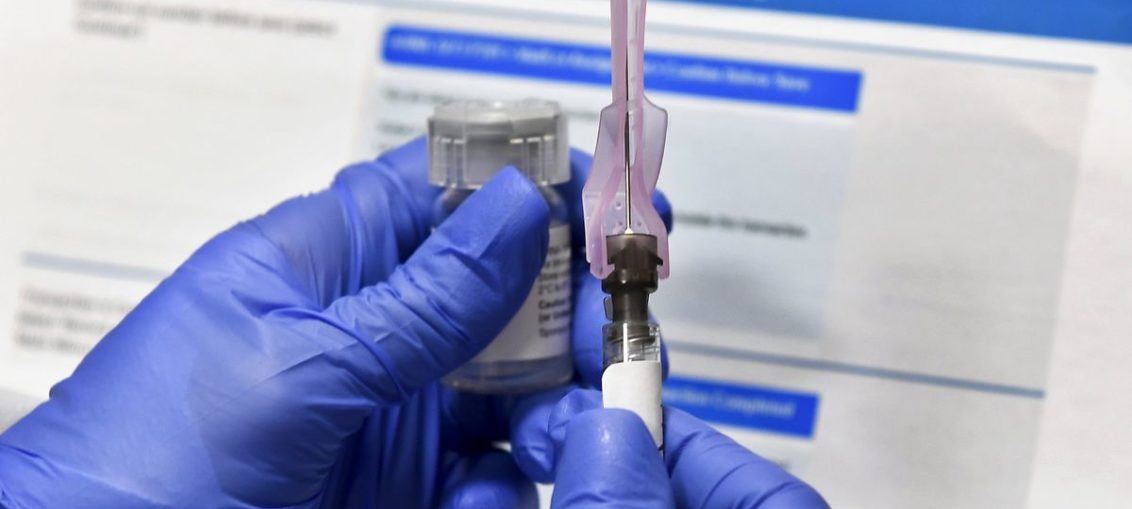
Approval of a vaccine will probably be a very powerful step in defeating COVID-19. But it received’t in an instant finish the pandemic.
President Donald Trump makes no secret he would love a COVID-19 vaccine to be to be had sooner than the election. But it’s in doubt that can occur. And, even after a vaccine wins Food and Drug Administration approval, there could be an extended wait sooner than it’s time to claim victory over the virus.
Dozens of vaccine applicants are in more than a few checking out phases world wide, with 11 within the final level of preapproval medical trials — together with 4 within the United States. One or extra may end up secure and efficient and input the marketplace within the coming months. What then?
Here are 5 issues to believe in making vaccine desires come true.
1. A vaccine is necessary in combating the virus, but it surely received’t be a snappy move again to our outdated lives.
Vaccines have helped rid the arena of scourges like smallpox, however the procedure takes time, and there aren’t any promises. Until medical trials were finished in this first spherical of vaccine applicants, nobody is aware of how efficient they could end up to be.
The minimal requirement by means of the FDA for any COVID-19 vaccine is that it must a minimum of end up 50% efficient compared with a placebo — a impartial saline answer.
By comparability, the yearly influenza vaccine levels between 40% and 60% efficient in fighting the sickness, relying at the recipient and the season tested. In distinction, a complete process the measles vaccine is ready 97% efficient.

Dr. Amesh Adalja.Johns Hopkins University
“It’s very unlikely that a first-generation vaccine will be something like a measles vaccine,” says Dr. Amesh Adalja, a health care provider with experience in infectious sicknesses who’s a senior student on the Johns Hopkins University Center for Health Security.
2. After vaccines acquire approval, the real-world analysis ensues.
Vaccines go through a prolonged checking out procedure involving 1000’s of topics. They win FDA approval simplest when they display protection and meet a minimum of the minimal same old of effectiveness. Monitoring continues when they hit the marketplace; effectiveness and any uncommon uncomfortable side effects or questions of safety turn out to be extra obvious after hundreds of thousands of doses are given.
Hypothetically, let’s say the primary new COVID vaccines end up 70% efficient at fighting the illness. That would imply seven of each and every 10 individuals who roll up their sleeves will probably be safe — however 3 won’t.
While that’s just right information for the ones safe, questions stay about who is roofed and who continues to be prone. It’s imaginable, Adalja says, that the vaccine would scale back the severity of illness in the remainder 3 other folks, serving to reduce hospitalizations and critical uncomfortable side effects.
But it’s additionally true that regulators are concerned about whether or not a vaccine prevents illness. Some vaccines can stay you from getting unwell with out fighting an infection, through which case it’s good to nonetheless unfold the virus even with out displaying signs.
Scientists don’t understand how lengthy the safety will final, for example. Will coverage fade, requiring annual pictures, as with influenza? Or will it final for years?
Also, the COVID vaccine applicants are being examined simplest in adults thus far. Most vaccine makers have behind schedule checking out amongst kids or pregnant and breastfeeding girls, for instance. That may imply an preliminary lag in protection and efficacy information for the ones teams, complicating vaccination efforts for youngsters and even front-line well being care staff, many who’re girls of childbearing age.
For all the ones causes — “if you are looking for a magic wand, you won’t find one in vaccines,” says Dr. William Schaffner, a professor of preventive medication and infectious illness at Vanderbilt University Medical Center in Nashville, Tennessee. “That said, vaccines will play a substantial role in reducing the epidemic.”
3. After a vaccine is licensed, you continue to may wish to wait…
Source hyperlink